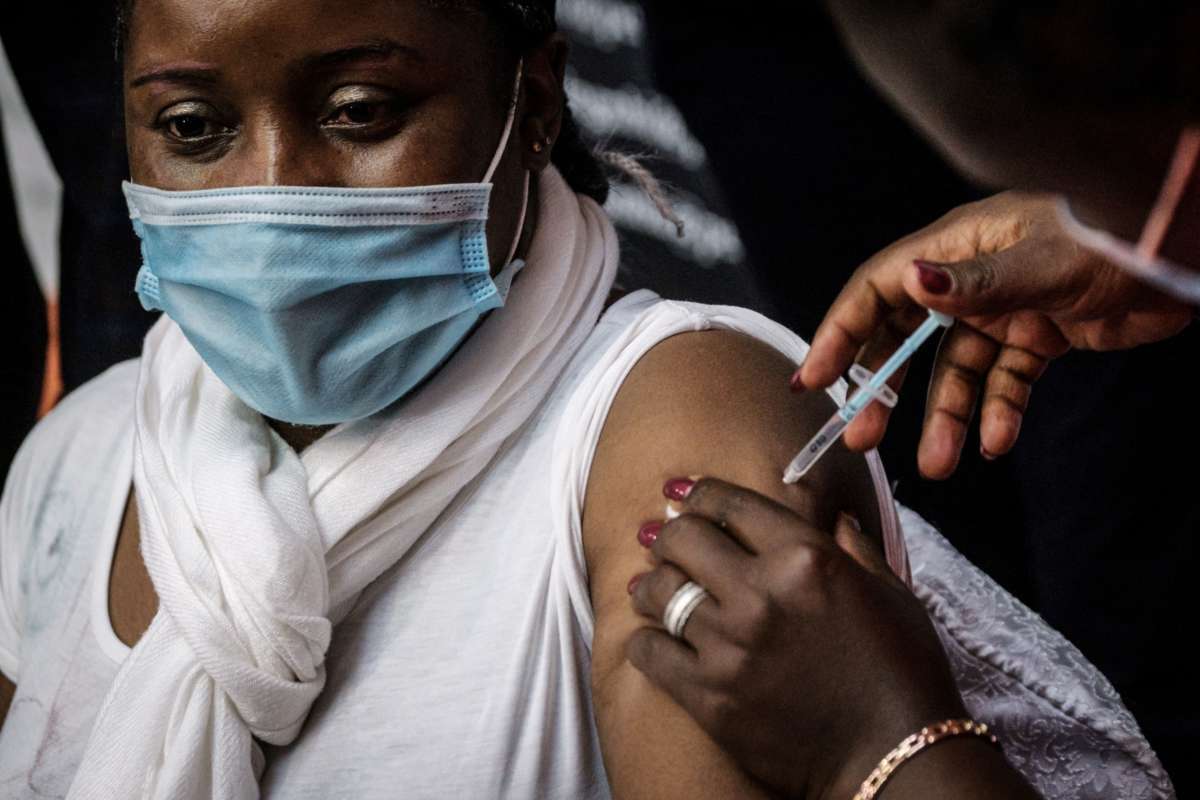Did you know that Truthout is a nonprofit and independently funded by readers like you? If you value what we do, please support our work with a donation.
The international humanitarian group Doctors Without Borders on Wednesday implored the United States, European Union member nations, and other rich countries to immediately end their opposition to South Africa and India’s patent waiver proposal, which would enable the mass production of generic coronavirus vaccines to meet the developing world’s dire needs.
“In this Covid-19 pandemic, we are once again faced with issues of scarcity, which can be addressed through diversification of manufacturing and supply capacity and ensuring the temporary waiver of relevant intellectual property,” Dr. Maria Guevara, international medical secretary of Doctors Without Borders, said in a statement.
“We urge all countries in opposition to this, including the U.S. and the E.U., to stand on the right side of history and join hands with those in support,” said Guevara. “It is about saving lives at the end, not protecting systems.”
Doctors Without Borders’ call came as a World Trade Organization (WTO) council is set to hold an informal meeting Thursday to discuss the proposed intellectual property waiver, which has garnered the support of more than 100 WTO member nations as well as hundreds of civil society organizations, former world leaders, and Nobel Prize-winning economists.
But the U.S. and European countries have repeatedly objected, denying the WTO the consensus support necessary to move forward with the waiver and keeping vaccine production under the control of profit-driven pharmaceutical companies that have lobbied aggressively against the proposal.
So countries meet again tomorrow for another round of discussion on #TRIPSwaiver @WTO. Even after six months of deliberations and #COVID creating havoc in many countries in Latin America and India, some countries continue to oppose this landmark waiver. https://t.co/hJTR1LWfjk
— Shailly Gupta (@Shaillytweeting) April 21, 2021
With strict intellectual property rules in place, low-income countries have been left largely without access to life-saving vaccines as infections continue to surge across the globe, leading experts to fear the emergence of vaccine-resistant strains that could prolong the global pandemic.
Earlier this month, the head of the World Health Organization estimated that just 0.2% of the vaccine doses administered globally have gone to people in low-income nations as rich countries swallow up much of the existing supply, leaving them with massive surpluses.
The editorial board of Nature, a leading scientific journal, recently observed that “the world needs around 11 billion doses of coronavirus vaccine to immunize 70% of the world’s population, assuming two doses per person.”
“As of [February], orders had been confirmed for 8.6 billion doses, a remarkable achievement. But some 6 billion of these will go to high- and upper-middle-income countries,” the board noted. “Poorer nations — which account for 80% of the world’s population — so far have access to less than one-third of the available vaccines.”
Doctors Without Borders said Wednesday that it was encouraged by U.S. Trade Representative Katherine Tai’s comments last week at a virtual WTO conference, where she said that “the significant inequities we are seeing in access to vaccines between developed and developing countries are completely unacceptable.”
“Extraordinary times require extraordinary leadership, communication, and creativity,” said Tai. “Extraordinary crises challenge all of us to break out of our comfortable molds, our in-the-box thinking, our instinctive habits.”
Tai went on to say that “there are many aspects of the institution of the WTO and its rules that have not adapted to a changed world,” but she did not provide any indication that the Biden administration plans to throw U.S. support behind India and South Africa’s proposal, which would allow generic manufacturers to replicate vaccine formulas.
The WTO is expected to consider the waiver once again during its next general meeting in May.
Dr. Márcio da Fonseca, infectious disease adviser for Doctors Without Borders’ Access Campaign, said in a statement Wednesday that “we have learned the hard lessons of the past of having to take a country-by-country and product-by-product approach of removing intellectual property barriers impeding access to lifesaving treatments; it is not sufficient and doesn’t provide no expeditious option for this global pandemic.”
“At a time when more than three million lives have already been lost to Covid-19,” da Fonseca added, “we urge countries to take all possible measures, including supporting this waiver, to be able to protect everyone, everywhere during this pandemic.”
Press freedom is under attack
As Trump cracks down on political speech, independent media is increasingly necessary.
Truthout produces reporting you won’t see in the mainstream: journalism from the frontlines of global conflict, interviews with grassroots movement leaders, high-quality legal analysis and more.
Our work is possible thanks to reader support. Help Truthout catalyze change and social justice — make a tax-deductible monthly or one-time donation today.
